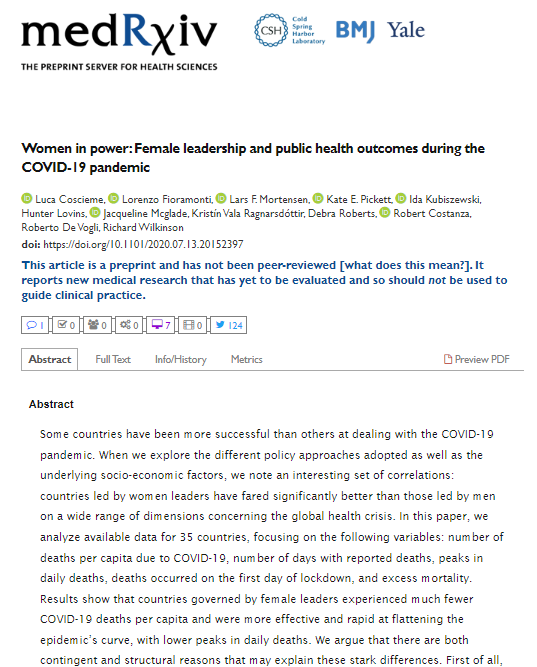
Hot or Cool Institute is a public interest think tank that explores the intersection between society and sustainability, we bring together researchers and practitioners to facilitate solutions to global problems.

Some countries have been more successful than others in dealing with the COVID-19 pandemic. When we explore the different policy approaches adopted as well as the underlying socio-economic factors, we note an interesting set of correlations: countries led by women leaders have fared significantly better than those led by men on a wide range of dimensions concerning the global health crisis. In this paper, we analyze available data for 35 countries, focusing on the following variables: number of deaths per capita due to COVID-19, number of days with reported deaths, peaks in daily deaths, deaths occurred on the first day of lockdown, and excess mortality. Results show that countries governed by female leaders experienced much fewer COVID-19 deaths per capita and were more effective and rapid at flattening the epidemic’s curve, with lower peaks in daily deaths. We argue that there are both contingent and structural reasons that may explain these stark differences. First of all, most women-led governments were more prompt at introducing restrictive measures in the initial phase of the epidemic, prioritizing public health over economic concerns, and more successful at eliciting collaboration from the population. Secondly, most countries led by women are also those with a stronger focus on social equality, human needs and generosity. These societies are more receptive to political agendas that place social and environmental wellbeing at the core of national policymaking.

Hot or Cool Institute is a public interest think tank that explores the intersection between society and sustainability, we bring together researchers and practitioners to facilitate solutions to global problems.
© Hot or Cool Institute gGmbH | All rights reserved
Don’t miss out on news from the Hot or Cool Institute. Subscribe to receive updates on research, projects, and more.



